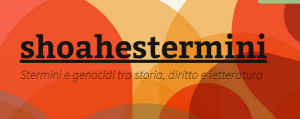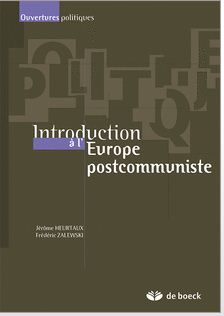 The Armenian Genocide 1915-2015. One hundred years of “Great Crimes”
The Armenian Genocide 1915-2015. One hundred years of “Great Crimes”
Deadline: 30 October 2014
International Workshop.
Padova, Italy, 11th-12th of March, 2015
https://shoahestermini.files.wordpress.com/2014/06/armeniangenocide_eng.pdf
The Study Group on Shoah and Mass Extermination, with the support of the
Department of Political Sciences, Law and Internationals Studies, University of
Padua, organizes an international two-day workshop on: The Armenian Genocide
1915-2015. One hundred years of “Great Crimes”, scheduled in Padua on 11 and 12
March 2015.
The Workshop aims at exploring in multidisciplinary perspective the events
that one hundred years back caused the Armenian genocide, the massacre of more
than one million Armenians in the territory of the Ottoman Empire, in a land where
they had lived for millennia.
The Armenian Metz Yeghérn (great crime) did not remain an isolated event.
The XX and the dawn of XXI century have witnessed other “great crimes” been
perpetrated in Europe, Africa, Asia…, with global repercussions. The legal concept
of “genocide” has tried to capture the unspeakable nature of the “crime of crimes”.
The workshop intends to reflect on the way “genocide” has become a key concept in
today’s legal and political discourse, by exploring the historical, ideological and
political origins of such a criminal praxis in the mass killings of the Armenians in the
context of the First World War.
The workshop will be articulated around three pillars.
The first pillar (The Armenian genocide in history and politics) is concerned
with the historical and political analysis of the 1915 events and of their aftermath in
Turkey, Europe, and worldwide.
The second pillar (At the origins of the word genocide: the Armenian massacre
and International law) is about the development of the legal discourse on
international criminal law after the Istanbul trials, the Lemkin’s scholarship on the
Armenian massacres and on the Third Reich, the Nuremberg and Tokyo trials, and
the post-war evolutions that has lead, among other things, to the establishment of the
UN criminal tribunals and the International Criminal Court.
The third pillar (The Armenian genocide as a political stake: memory,
reconciliation, negationism, and the right to truth) will address the social, political,
ethical and legal processes associated to the healing of a major societal trauma.
Contributions will encompass the perspective of the traumatized communities of both
victims and perpetrators, as well as the viewpoints of other involved political actors.
The workshop will be animated by guest speakers and panelists. Prospective
panelists are invited to submit papers addressing the above topics in an original and
innovative way, bearing in mind that the worksop’s aim is to accrue scientific
knowledge and understanding, and not merely commemorate the 1915 events.
Papers and panelists will be selected by the workshop’s scientific committee on
the basis of a 500 word abstract, that has to be submitted by 30 October 2014 along
with a short CV of the author. Accepted panelists will have to send the full paper by
30 January 2015. Papers should be approximately 12,000 word long.
Please email your abstract to the organizing committee:
armeniangenocideconference@gmail.com













